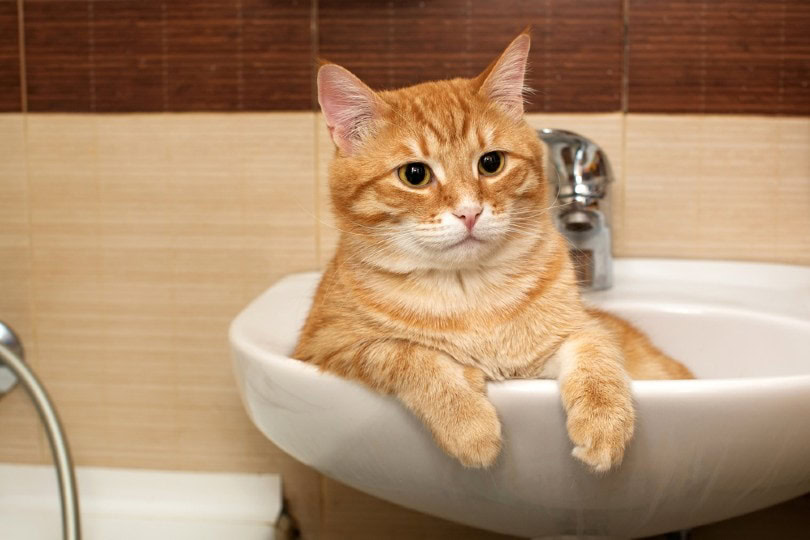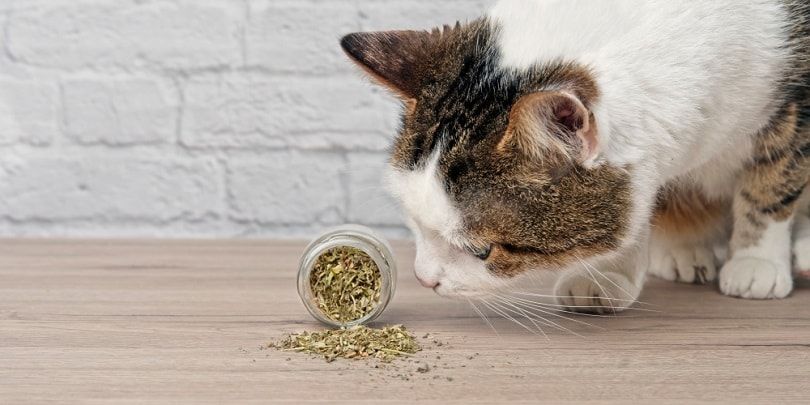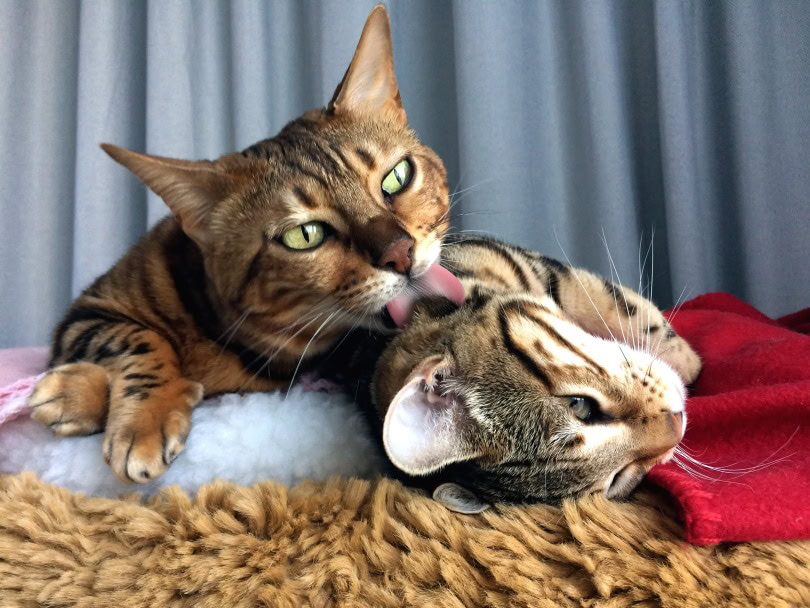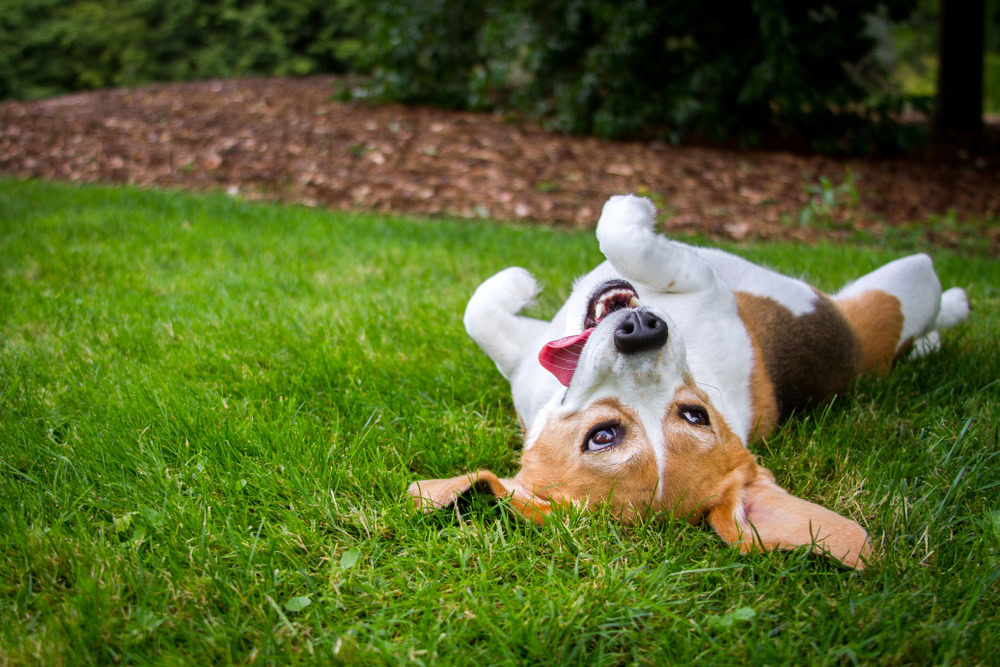VET APPROVED

The information is current and up-to-date in accordance with the latest veterinarian research.
Learn more »Click to Skip Ahead
Inappropriate urination is a big problem when you’re talking about a cat. It smells very strong, and it is an indication that something is amiss. Luckily, since most sinks aren’t made of porous materials (they wouldn’t be very good sinks if they weren’t), they won’t retain the smell of cat pee for very long. However, it’s still never fun to find your cat urinating in your lovely, clean sink.
Important information: Changes in your cat’s urination habits should not be ignored, as they could point to serious medical conditions requiring immediate attention. Certain urinary problems can jeopardize your cat’s well-being. Watch for signs like difficulty passing urine, vocalizing during urination, unsuccessful straining, abnormal urine color, or an increase in urination frequency. Prompt veterinary care is essential to address these concerns and prevent potential life-threatening consequences.

Why Do Cats Urinate Inappropriately?
There are a few reasons a cat may begin to urinate in inappropriate places. Most of them are litter box-related, but some are medical.
Most commonly, cats urinate inappropriately because they’re displeased with some part of their environment. Pet parents may find that their cat stops urinating in places they should not when they correct the undesirable part of the cat’s environment.
An excellent way to think of it is that peeing and pooping inappropriately is a manifestation that something is not right with your cat. They’re showing that something is wrong with their environment or body that needs to be addressed.
It is always best to have your cat checked out by a veterinarian as soon as you notice the problem. A vet can best determine if the issue is medical.
Here are some reasons your cat may be urinating in your sink.
Reasons Your Cat May Be Urinating in Your Sink
1. Displeasure With Their Litter Box
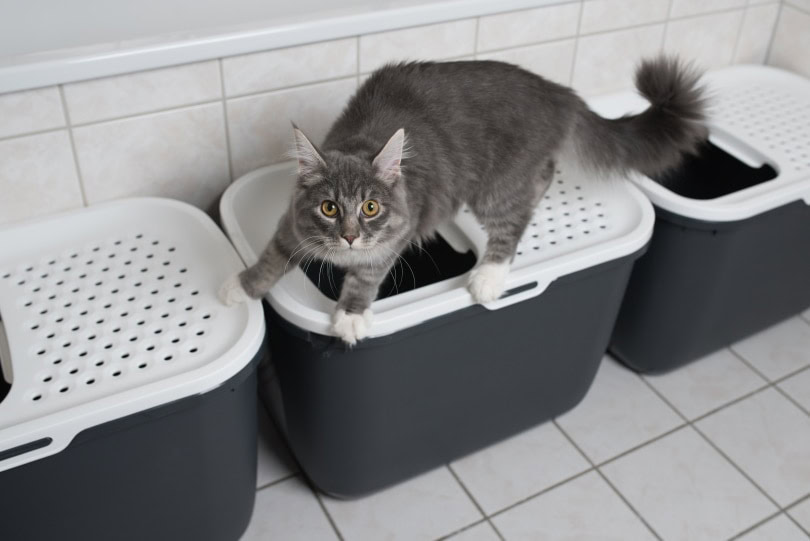
The most likely reason your cat is urinating in the sink is that there’s something they don’t like about their litter box. There are many reasons a cat might not feel comfortable with their litter box, and this issue could strike at any time.
The solution to your cat’s litter box displeasure lies in the cause, and determining the cause starts with identifying the problem. If this happens suddenly, look for things that have changed about your cat’s litter box environment. Is it dirtier than usual? Have you changed the type of litter you’re using? Is the box in a different location than usual?
Any change to the litter box environment could cause your cat to refuse to use it. They like having a predictable environment, and when things change concerning their toilet, they may manifest it in this way. So, don’t be surprised if they start peeing in the skin if the litter box is in a busy area, close to a window, or too dirty.
Find out what’s wrong with your cat’s litter box and fix it. Start by adding a couple more litter boxes in different locations to give your cat the option of urinating in different places while you figure out what the exact problem is.
Even if you keep a clean and tidy litterbox, you probably still find yourself with cat odors and stains around the house – but with the Hepper Advanced Bio-Enzyme Pet Stain & Odor Eliminator Spray, you can permanently remove even the very worst pet stains and smells! Click here to learn more and get yourself a bottle.
- ADVANCED ENZYMATIC CLEANER - Penetrates the most stubborn smells and stains at the deepest molecular...
- FOR ANY MESS, ON ANY SURFACE - This pet odor eliminator cleans your carpets, floors, furniture,...
- FRESH, NATURAL ODOR - Our unique formulation doesn't rely on dangerous or unpleasant chemical...
At PangoVet, we’ve admired Hepper for many years, and decided to take a controlling ownership interest so that we could benefit from the outstanding products of this cool cat company!
2. Displeasure With Other Changes to Their Environment
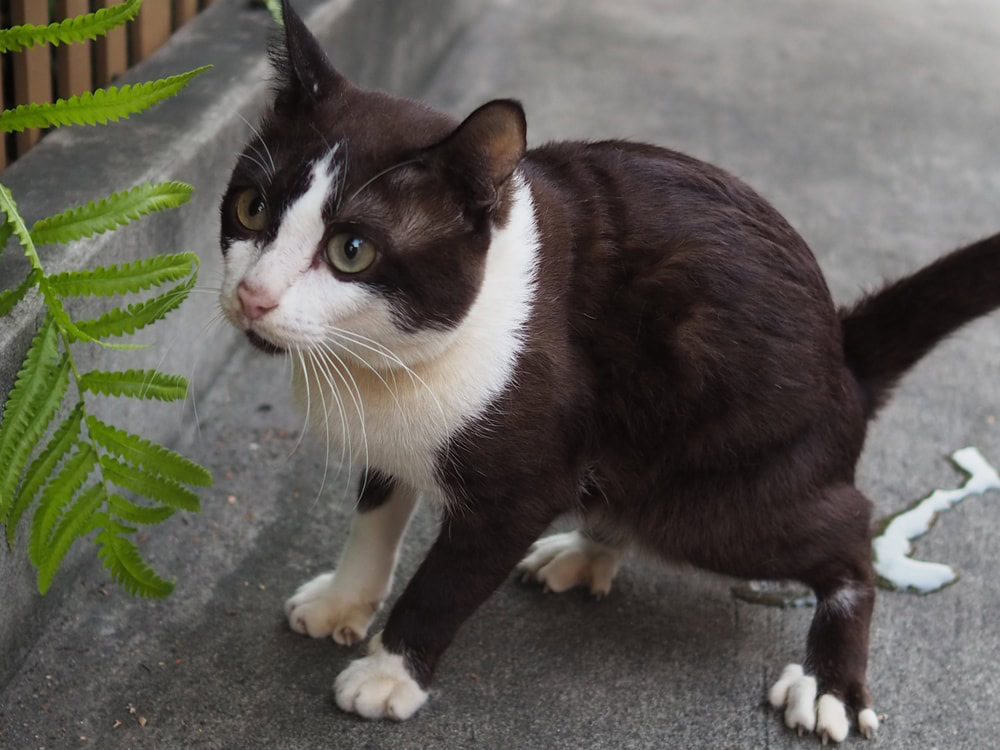
As we mentioned before, cats don’t like change. Any significant change to their environment, even if it has nothing to do with their litter box, could set off your cat and make them start acting out in anxiety or voice their displeasure with you.
If you’ve recently changed your work routine, introduced a new pet, have started building work on your home, or any other large-scale change to your environment, this could be making your cat uncomfortable and unhappy. Unfortunately, this isn’t so easily remedied as it’s not always feasible to change your work routine or to bring back the new pet.
Pheromone diffusers can diffuse calming pheromones for your cat and help them feel more comfortable in their new environment. Putting these diffusers around your house can help your cat feel more secure, knowing that this is their home!
3. Illness or Aging
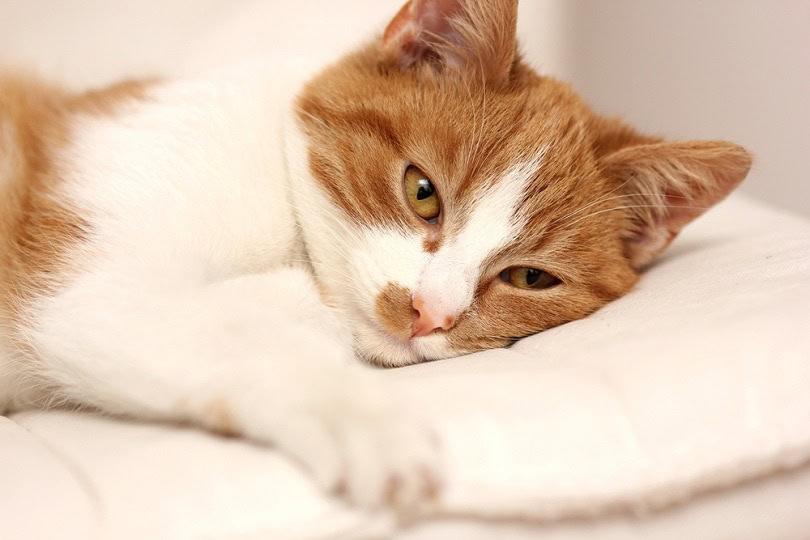
Several illnesses may cause your cat to urinate inappropriately. If you think your cat is urinating inappropriately because of a medical issue, the best thing you can do is get them to a veterinarian who can oversee their recovery.
Feline Lower Urinary Tract Disease
FLUTD is a relatively common illness that afflicts cats. Cats with FLUTD may experience frequent trips to the litter box, discomfort when urinating, and urination in inappropriate places. They sometimes prefer to urinate on cool, smooth surfaces like tile floors, bathtubs, or sinks.
FLUTD always requires prompt veterinary intervention to make sure it doesn’t escalate into a more severe health problem.
Urinary Crystals
Cat urine contains crystallized minerals. When urine is saturated with crystals, the cat may experience pain when urinating and frequent urination as the body attempts to correct the mineral imbalance in the urine.
Because of the pain when urinating, cats with excess urinary crystals may urinate inappropriately or have accidents outside of the litter box.
Urinary Tract Infection
Urinary tract bacterial infections are not too common in cats. Most urinary problems in cats are inflammatory, however, sometimes bacteria can get into the urethra or bladder and grow there, causing pain when urinating and frequent urination.
Cats with UTIs may experience sudden urinary urgency pain when urinating. They may have accidents or urinate inappropriately because they can’t hold their urine as they usually would be able to.
Aging
As cats age, they may experience physical and mental changes that lead to unexpected behaviors, such as urinating in the sink. Mobility issues can make accessing the litter box difficult, while cognitive decline, like feline dementia, may cause confusion or forgetfulness about its location.
The best solution depends on your cat’s specific health condition. For issues like FLUTD, UTIs, or urinary crystals, prompt veterinary treatment can resolve the problem and help restore proper litter box use.
Older cats may require environmental modifications, such as easier access to their litter box or reminders of its location, to accommodate their changing needs. In some cases, managing age-related behaviors may require patience and adjustments, much like caring for an aging human.
Consult a veterinarian to determine the most effective plan for keeping your senior cat happy and comfortable and ensuring their well-being. Together, you can find strategies that work best for your cat’s unique situation.


Final Thoughts
Inappropriate urination is a frustrating problem, and the most important thing is to quickly find out the reason for this problem so that a plan of action can be put in place. As always, the first talk should be with your veterinarian. They have a more comprehensive overview of your cat’s behaviors and previous problems and can offer insight based on their personal experience with your cat.
Related Read:
- How to Find Hidden Cat Pee and Get Rid of the Smell (Step-By-Step Guide)
- Why Does My Cat Pee On My Clothes?
- How to Get Cat Pee Out of a Comforter in 5 Steps
- How To Get Rid Of Old Cat Urine Odor (5 Home Remedies)
Featured Image Credit by: Okssi, Shutterstock
